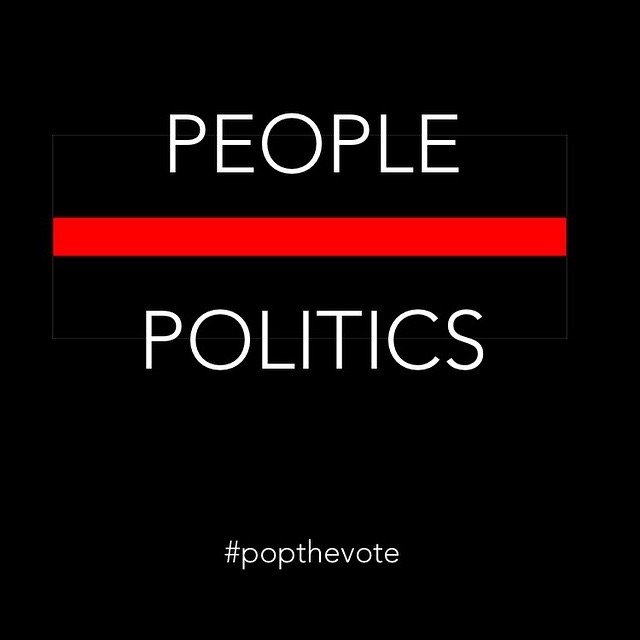
In my past two articles I have tackled the complex theory of voting and how it applies to discovering the will of the people and ultimately the “authority” of government. There has been quite a bit of vocal resistance to my proposed idea of negating someone else’s vote. I would like to take a moment to discuss the nature of this resistance.
Negative Voting would create a Culture of Hate
When you vote for a different candidate than your friend it isn’t taken personally, but if you opt to negate your friends vote instead it suddenly becomes very personal. This is probably true. Even though the reality is that your friend is canceling your vote anyway, people irrationally feel like something has been taken from them.
The truth is that something has been taken from them: the illusion that their vote matters. The illusion that their opinion isn’t being canceled out by some anonymous stranger on the other side of the country. Now it is being canceled by someone with a name.
The result is misplaced anger being directed at the person who chooses to cancel you out. No one ever stops to consider that the individual who canceled you out has just as much right to be angry at you for voting to support policies that would harm them. Their vote has already been canceled by you!
We currently live in a culture where people can numb themselves to the consequences of their vote. They never have to face the victim. You want free health care? Great! You just got nullified by the person who was going to have to pay for it.
The existing culture of voting is like piloting a UAV and bombing people you have never met in a distant land. Mean while those people in a distant land are attempting to bomb you with their own UAVs. Neither side has met one another, but both are willing to hurt each other for their own benefit.
There is bound to be less death and destruction in a society where people get to put a name and face on the individual who is countering their attempts at abuse of power. Instead people will migrate their own public opinions toward things that don't infringe on the rights of others. As soon as your vote or opinion violates someone else's right, you better believe it will get nullified by them. Only those who support solutions that do not violate someone else's human right will have a chance to avoid nullification. This will certainly create a culture of peace and understanding, not one of hate.
A Stable Environment
Once you have identified someone whom you want to counter, there is little reason to change your opinion unless you find someone even worse who hasn’t already been countered. This means that over time there would be relatively little “politics” to discuss because everyone who is in violent disagreement with others has all ready been nullified.
This means that your friends and family and almost everyone you know has probably been nullified and will be nullified by someone their entire life. Politics, elections, and voting would not be a topic of general discussion.
If you want your “right to vote back”, then all you need to do is convince the person nullifying you that there is someone even worse who isn’t currently nullified. Once the two of you reach consensus then one of you can get your ability to cast a positive vote back (the other one will nullify the greater evil).
Votes for Sale
The next point of concern is that if there is a public database of voters and who they are canceling (necessary to determine who can cast a positive vote), that people could pay others to cast negative votes.
The right to vote includes the freedom to vote for any reason. Denying someone the right to vote because you don’t like their reason is tyrannical. Everyone votes for selfish reasons. It is like denying a woman the right to sell sexual services. Her body, her vote.
The truth is that is is cheaper to buy votes with propaganda than with direct offers of payment. Anyone willing to buy or sell their vote would probably get canceled out by someone against that practice. At the end of the day buying and selling of voters is a free market solution to resolving political differences in a voluntary manner.
No Right to Abuse Vote
This is an interesting paradox because who gets to decide what is and isn’t abuse? Shall we vote on it? Is a vote to declare something abuse also abuse? This is a hypocritical position that assumes some universal standard of right and wrong. If such a standard existed then there would be no need to vote in the first place.
Conclusion
People are irrational yet believe they are perfectly sane. They will take personal offense any time anyone attempts to expose the disconnect between reality and their own delusions. This isn’t a reason to abandon a system of negative voting, but rather a reason to implement it. Anything that forces people to come face to face with reality and stop hiding their violent tendencies behind an anonymous voting box will lead to a more civil society.
